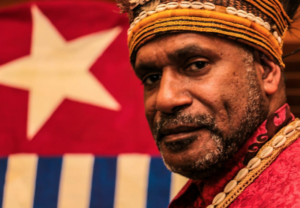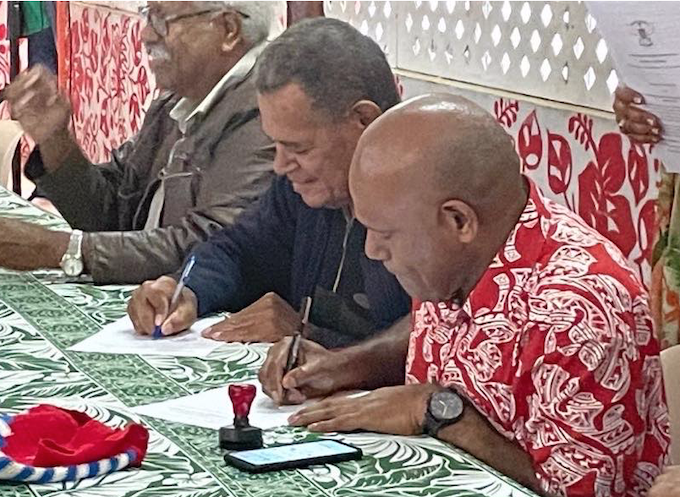New Caledonia’s pro-independence FLNKS (Kanak and Socialist National Liberation Front) has signed a memorandum of understanding with the United Liberation Movement for West Papua (ULMWP), which wants independence from Indonesia.
The Kanak-Papuan deal was signed by Roch Wamytan, President of New Caledonia’s Congress, and the visiting ULMWP leader Benny Wenda.
Wamytan told La Premiere television in Noumea that both territories were involved in a process of decolonisation and emancipation — one with France, the other with Indonesia.
“We have signed this accord because each of us are confronted by a process of decolonisation and emancipation. The people of Papua with Indonesia and us with the French state,” he said.
“This process of decolonisation has not ended for us, it has been ruptured over time, to say the least.”
The memorandum aims to support each other internationally and to develop a list of common goals.
Indonesia took over the western half of New Guinea island after a controversial 1969 UN-backed referendum that is rejected as a sham by Papuans, with West Papuan activists now seeking inscription on the UN decolonisation list.
New Caledonia has been on the UN decolonisation list since 1986, and between 2018 and 2021 has held three referendums on independence from France.
Wenda visited Vanuatu on the first leg of his Pacific trip from his exiled base in London.
He was a guest of the Vanuatu West Papua Independence Committee.
FLNKS will boycott Paris talks
New Caledonia’s pro-independence FLNKS movement said it would not attend talks in September of the signatories to the 1998 Noumea Accord in Paris.

A special meeting of the movement’s leadership decided at the weekend that legitimate talks would now have to be bilateral ones, involving the FLNKS and France as the colonising state.
Newly-elected FLNKS Congress member Laura Humunie said bilateral talks were the only formal way to get their message to the French state.
“We repeat, that to obtain bilateral talks we will not go to Paris because for us this is the legitimate way of talking to the French colonial state,” she said.
“Our loyalist partners who have signed the ‘no’ referendum, means that they align with the French state’s ideals.”
Last December, more than 96 percent voted against independence from France in a referendum boycotted by the pro-independence parties, which refuse to recognise the result as the legitimate outcome of the decolonisation process.
This article is republished under a community partnership agreement with RNZ.

Article by AsiaPacificReport.nz





